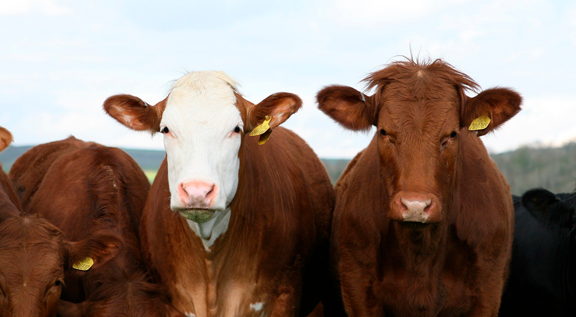
Image: Pixabay
The animal protein sector presented the main challenges of the sector to the government of Rio Grande do Sul today. During breakfast, the acting governor, Gabriel Souza, accompanied by the secretaries of Agriculture, Environment, Rural Development, Economic Development, the Civil House and the undersecretary of State Revenue, stated that “it is the government's desire to act not only in the acceptance of domestic agendas, but also in matters exogenous to the state, especially in the issue of opening new markets”.
The president of the RS Animal Health Defense and Development Fund, Rogério Kerber, was the first to speak. He pointed out that Rio Grande do Sul has an enviable health status and that the sector has expectations related to the opening of markets, precisely due to the achievement of international certification of an area free from foot-and-mouth disease without vaccination, obtained in May 2021. Kerber also cited the main bottlenecks in the sector, such as corn supply, a topic that was also addressed by other leaders, such as the president of the Union of Pork Products Industries of RS, José Roberto Goulart. He stated that the state loses a lot of foreign exchange when it needs to import corn from other regions or countries.
{module Form RD}
The president of the Gaúcha Poultry Association, José Eduardo Santos, highlighted the importance of advancing tax issues for the sector and maintaining the deferral that the activity has. The president of the RS Pig Breeders Association, Valdecir Folador, highlighted the importance of independent pig farmers and delivered a document requesting exemption from the ICMS rate on interstate sales of live pigs, which in 2022 alone represented more than R$ 11 million. The vice-president of the RS Meat Industries Union, Alvaro Provin, highlighted the need for the state to contribute to publicizing the attributes of beef from Rio Grande do Sul, to promote increased consumption and the conquest of markets. The dairy sector also presented demands through Sindilat and Apil. The Organization of Cooperatives of RS also made reference to the difficulties of the dairy sector, and the president of the Agribusiness Council of the Federation of Industries of RS delivered a document analyzing the need for irrigation for corn in the state and proposing more effective solutions for issue of irrigation.
Tax and market issues and the need to think about preventive measures for the drought, which has hit the state for the third consecutive year, were the main topics discussed. Gabriel Souza committed to receiving, together with the secretaries involved, the most detailed demands from each sector. Regarding the drought, he assured that the issue of water reservation is a government priority. “We will have to accelerate RS’s water reservation policy, perhaps even with some legislative change,” he stated.
Source: Notícias Agrícolas












